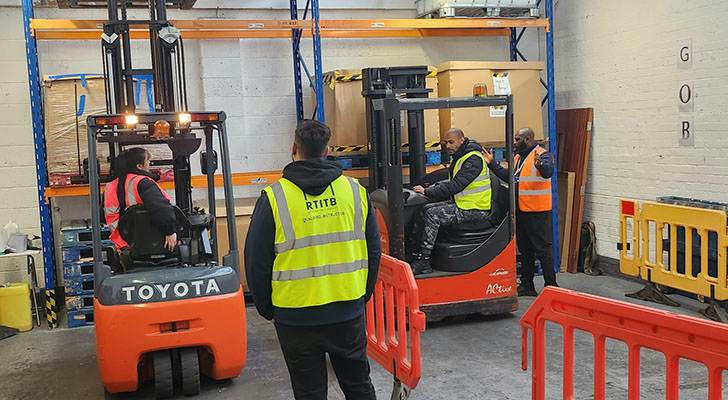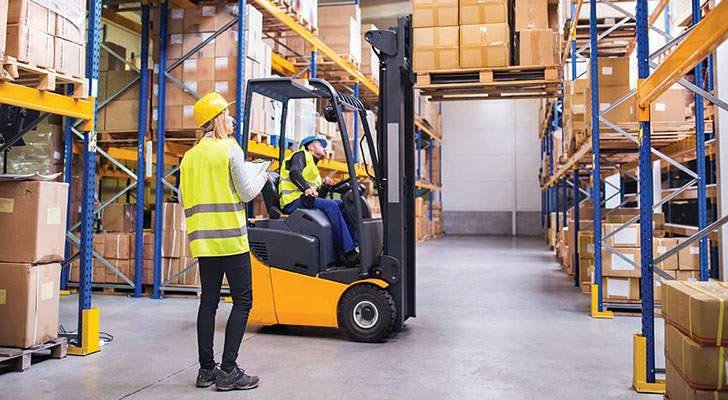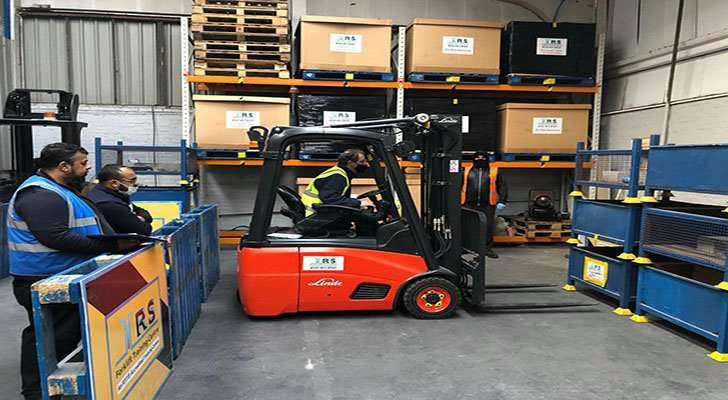Forklift Training: A Gateway to Stable Jobs in Warehousing and Logistics
In today’s supply chain-driven world, forklift operators play a critical role in keeping goods moving efficiently and safely. From warehouses to construction sites, forklifts are essential machines, and trained operators are in constant demand. Forklift training offers a fast and practical way to gain valuable credentials and open the door to stable, well-paying work.
Whether you are entering the job market for the first time, changing careers, or looking to upskill, forklift certification can serve as a direct path to employment.

What Is Forklift Training
Forklift training is a short, intensive program that teaches individuals how to operate powered industrial trucks safely and competently. Training typically includes classroom instruction, practical hands-on training, and a final evaluation.
Classroom instruction covers essential topics such as OSHA regulations, forklift safety rules, load handling principles, and equipment types. Hands-on training allows participants to practice driving, maneuvering, stacking, reversing, and navigating different types of spaces using real equipment. A final evaluation assesses both written knowledge and driving skills.
Upon completion, trainees receive certification that qualifies them to operate forklifts in a professional setting.
Why Certification Is Required
In the United States, the Occupational Safety and Health Administration (OSHA) mandates that all forklift operators be certified before they use equipment in the workplace. Operating a forklift without proper training is not only dangerous but also a legal risk for employers.
Certification ensures that operators understand the machinery, follow safety procedures, conduct proper inspections, and are prepared to respond calmly in unexpected situations. A valid forklift certificate is typically valid for three years, after which refresher training is required.
Employers are more likely to hire candidates who already hold certification, as this reduces training costs and ensures compliance.
Job Opportunities After Training
Forklift certification qualifies individuals for a wide range of jobs in warehousing, logistics, manufacturing, and construction. Common roles include forklift operator, warehouse associate, material handler, inventory technician, and shipping or receiving clerk.
Forklift skills are especially valuable in distribution centers, freight companies, retail warehouses, and production facilities. Certified operators may also find work with large employers such as Amazon, Walmart, FedEx, and local construction contractors.
Because forklift operation is a skill that spans multiple industries, certified individuals often enjoy greater flexibility and more consistent employment options.

Salary and Earnings Outlook
Forklift operators typically earn competitive wages, with pay rates influenced by experience, location, shift type, and the types of equipment they are certified to use.
Entry-level forklift operators generally start at an hourly wage between sixteen and twenty dollars. More experienced operators can earn twenty-two to twenty-seven dollars per hour or more, especially in high-demand regions. Unionized warehouses or companies with night shifts and overtime opportunities can push annual earnings past fifty thousand dollars.
As operators gain additional skills—such as experience with heavy equipment or specialized forklifts—their earning potential increases significantly.
Duration and Format of Training
Forklift training programs are designed to be fast and focused. Most programs take between one and three days to complete, depending on the number of equipment types covered and the level of prior experience.
Some employers offer on-the-job training for new hires, while others require candidates to complete certification in advance. Many vocational schools, staffing agencies, and workforce development centers also offer forklift training as part of broader warehouse or logistics programs.
Training is available in several formats, including fully in-person instruction, hybrid models with online theory and in-person driving assessments, and employer-sponsored sessions conducted on-site.
Who Should Consider Forklift Training
Forklift training is ideal for individuals who are seeking practical, hands-on work and want to enter a stable industry without spending years in school. It is especially beneficial for job seekers aiming to enter warehousing or construction, current employees who want to advance to better-paid roles, and those who want to enhance their résumé with a certified skill.
There are no formal educational requirements to enroll in forklift training, although participants must be at least eighteen years old and physically able to operate machinery.
This training is also a strong option for people looking to transition out of retail or food service into more stable, higher-paying work.

How to Get Started
Enrolling in a forklift certification program is relatively straightforward. First, find a certified training provider in your area. This could be a local community college, trade school, staffing agency, or independent training center.
Next, register for an upcoming class and pay the tuition, which typically ranges from one hundred to three hundred dollars. Some workforce programs and employers may cover this cost or reimburse it after hiring.
After successfully completing the training and passing the written and practical exams, you will receive your forklift operator card and certificate, which can be presented to potential employers as proof of compliance.
A Practical Investment in Your Future
Forklift training is a low-cost, high-impact credential that can lead to immediate job opportunities in a wide range of industries. The skills you gain are portable, in demand, and valuable across the country. With short training times, flexible class options, and a strong return on investment, forklift certification is an excellent choice for anyone looking to start or advance a hands-on career.
If you are ready to take the next step toward job stability and higher income, forklift training may be the right move.
